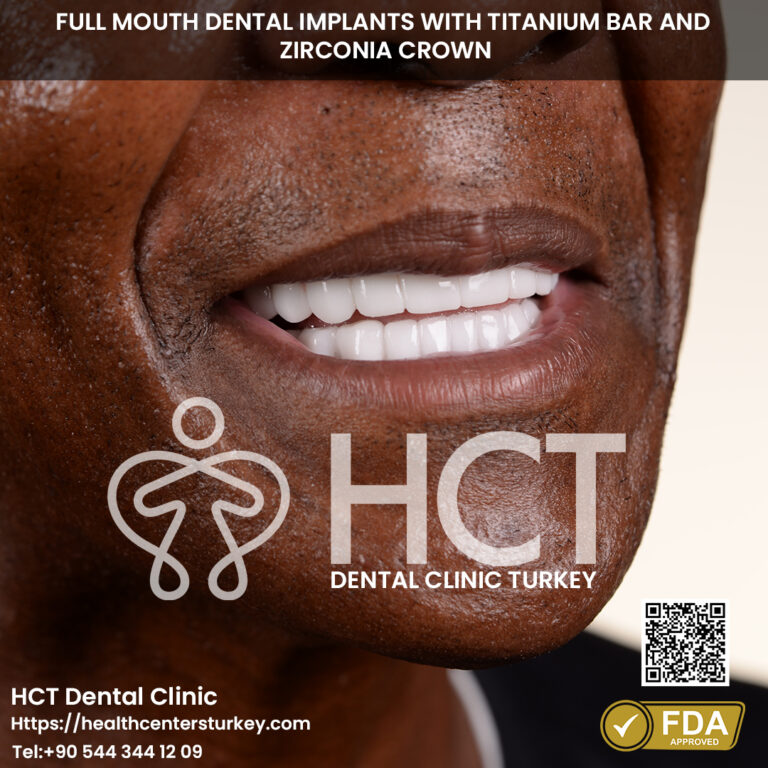Elevating Care Standards in Turkish Dental Clinics
Elevating Care Standards in Turkish Dental Clinics
Blog Article
Reasons to Consider Dental Tourism in Turkey for Treatment
Dental implants have become a popular solution for these trying to replace missing teeth. Understanding how these implants can affect adjacent teeth is important for anyone considering this procedure, as properly as for dentists and specialists involved in dental care.

One significant side is that dental implants are designed to be anchored into the jawbone, which suggests they're unbiased of adjacent teeth. Unlike dental bridges, which often require the alteration of neighboring teeth, implants can fill the hole with out compromising the health or structure of those surrounding teeth.
This independence helps preserve the integrity of adjacent teeth. When a tooth is lost, there is often a natural tendency for neighboring teeth to tilt or shift into the empty space. Such motion can lead to misalignment, which might have an effect on chunk and overall oral health. By inserting an implant, you effectively prevent this potential shift, selling better alignment in the long run.
Plan Your Dental Journey in Turkey
Additionally, dental implants help preserve bone density in the jaw. A natural tooth root supplies stimulation to the surrounding bone, maintaining it healthy and powerful. When a tooth is missing, the bone can start to deteriorate due to lack of stimulation. With a dental implant mimicking a natural root, bone loss may be minimized, which indirectly advantages adjacent teeth by preserving the overall structure of the dental arch.
While dental implants are advantageous, improper placement can influence neighboring teeth. If an implant is positioned too shut to another tooth, it may exert undue pressure on that tooth, leading to discomfort or potential harm. Proper planning and imaging techniques are essential for avoiding such points.
All-Inclusive Cosmetic Solutions available in Turkey for a Beautiful Smile
Moreover, sustaining good oral hygiene is crucial after receiving an implant. If not correctly cleaned, surrounding teeth could turn out to be prone to dental issues similar to decay or gum disease. This underscores the significance of diligent oral care following the process to ensure each implants and adjacent teeth stay wholesome.
Regular dental check-ups are additionally vital for monitoring the health of surrounding teeth. Dentists can establish any shifts or potential problems early, allowing for timely interventions. This proactive method ensures that each the implant and adjacent teeth can coexist without issues.
Save Money on Dental Treatments in Turkey
Another consideration is the influence of implants on chunk force. When a single tooth is missing, the load of chewing might shift to adjacent teeth, probably resulting in wear or strain. Implants restore correct chunk dynamics by redistributing forces in the mouth, which may defend surrounding teeth from undue stress.
Some patients may increase issues in regards to the appearance of dental implants. Well-placed implants can blend seamlessly with present teeth, bettering total aesthetics. In contrast, failing to replace a missing tooth can lead to aesthetic issues, together with collapsing of facial structure and adjustments in smile dynamics.
It's additionally worth discussing the psychological aspects of dental health. Experiencing tooth loss can adversely have an effect on one’s vanity and willingness to interact socially. By restoring your smile with implants, you'll find a way to positively influence not only your oral health but also your emotional well-being.
Long-term success of dental implants often hinges on numerous elements, together with the affected person's health, maintenance habits, and the standard of the preliminary process. If adjacent teeth are wholesome and properly cared for, the chances are they will continue to thrive alongside the implants.
Your Destination for Quality Dental Care at Affordable Prices
In conclusion, dental implants play a vital function in not simply restoring particular person smiles, however in preserving the health and official source structure of adjacent teeth. By stopping shifting, sustaining bone density, and redistributing bite forces, implants can be positive that surrounding teeth remain in optimum condition. Proper placement, hygiene, and common dental visits can additional improve the advantages of dental implants, resulting in a more healthy, more confident smile for years to come.
- Dental implants can help maintain the alignment of adjacent teeth by providing a stable anchor, stopping adjacent teeth from shifting into the hole left by a missing tooth.
- The presence of an implant could stimulate bone progress in the jaw, serving to to protect the general structure and integrity of the adjacent teeth.
- Unlike conventional bridges, implants do not require alteration of surrounding teeth, thus preserving their power and anatomy.
- Implants can improve the distribution of chew forces evenly across the dental arch, decreasing the stress on neighboring teeth during chewing.
- A well-integrated dental implant can lower the chance of bone loss within the space surrounding adjacent teeth, contributing to their long-term health and stability.
- The aesthetics of adjacent teeth could be improved because of the support provided by implants, which might result in better overall cosmetic outcomes.
- With correct placement, dental implants can prevent gum recession round adjacent teeth by maintaining adequate dental structure.
- Implants may help mitigate the risks of periodontal disease in nearby teeth by promoting wholesome gum tissue and offering a cleanable floor.
- Long-term success of dental implants can result in improved oral hygiene routines, which in turn benefits the health of surrounding teeth.
- The improved practical ability of an implant can encourage sufferers to chew more successfully, thus growing saliva production and aiding within the safety of adjacent dental tissues.undefinedHow do dental implants have an effect on adjacent teeth?
What are dental implants and how do they work together with adjacent teeth?undefinedDental implants are artificial tooth roots that are surgically positioned into the jawbone. They present a stable basis for replacement teeth while ensuring minimal disruption to adjacent teeth, preserving their integrity and alignment. Comprehensive Smile Makeover Options located in Antalya.
Enjoy World-Class Oral Care on Your Trip
Can dental implants trigger problems for nearby natural teeth?undefinedGenerally, dental implants don't harm adjacent natural teeth. However, if the implant is not positioned correctly or if there’s insufficient oral hygiene, it might lead to issues similar to adjacent tooth decay or gum disease.

Will getting a dental implant change the way my adjacent teeth feel?undefinedMost patients report no change in the sensation of adjacent teeth after implant placement. However, it may take some time to adjust to the presence of the implant, similar to how one could adapt to other dental restorations.
Can dental implants assist preserve the health of adjacent teeth?undefinedYes, dental implants can help maintain the health of adjacent teeth by stopping bone loss that may occur after tooth loss. This preservation supports the alignment of nearby teeth, reducing the chance of shifting or misalignment.
Find Your Path to a Beautiful Smile with High-Quality Dental Care
Do I need to modify adjacent teeth when getting an implant?undefinedTypically, adjacent teeth don't click for source want alteration when putting an implant. This is among the advantages of dental implants over conventional bridges, which frequently require reshaping adjacent teeth for support.
How does the therapeutic strategy of an implant affect nearby teeth?undefinedThe healing course of includes osseointegration, where the implant fuses with the jawbone. During this time, adjacent teeth stay unaffected and retain their perform, though it’s important to comply with post-operative care recommendations. Essential Information about Dental Tourism in Turkey.
Experience Luxury Dental Care in Turkey at Competitive Prices
Can dental implants result in bone loss around adjacent teeth?undefinedIf dental implants are positioned correctly and cared for adequately, they need to not result in bone loss around adjacent teeth. In fact, they might help stimulate bone growth, combating the natural bone loss that usually follows tooth extraction.
What precautions should I take to protect adjacent teeth after getting an implant?undefinedRoutine dental hygiene, together with brushing and flossing, along with regular dental check-ups, is essential. Avoiding exhausting meals and following your dentist’s aftercare instructions may even shield each the implant and adjacent teeth.
Is it widespread for adjacent teeth to shift after an implant is placed?undefinedIt's not typical for adjacent teeth to shift after an implant placement, particularly when the implant is placed accurately and maintained properly. If there’s any motion, it may be as a outcome of other underlying points that should be evaluated by a dental skilled. Report this page